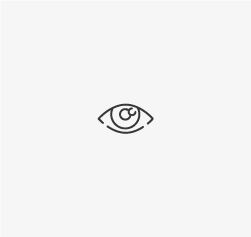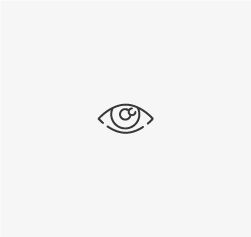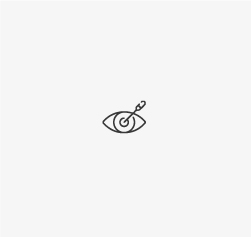CATARACT SURGERY
Cataract is a common cause of poor vision, especially among the older population, however it is treatable. It consists of the decreased transparency of the lens of the eye - the normally transparent lens of the eye - and can be compared to a window that is covered in frost or fogged up with steam.
When a cataract forms, the lens of the eye becomes thick and cloudy, light cannot pass through it easily and vision becomes dull.
Cataract surgery is a highly successful procedure and in over 90% of cases the result is improved vision, unless there is a problem with the cornea, retina or optic nerve. It is important to be aware that complications can occur during and after surgery and as such opting for this solution will need to be thoroughly considered by you. It is important to understand that complications can occur during or after surgery, some serious enough to limit vision. As with any other surgery, there is no way to guarantee a good result in 100% of cases.
Cataract surgery should be considered when cataracts cause such a loss of vision as to impair daily activities and when visual needs so require.
The patient has to decide whether he or she can see enough to carry out his or her tasks, such as driving safely or reading and watching television comfortably. In other words, the patient has to work out whether he or she can carry out everyday tasks without any difficulty.
Based on your symptoms, you and your ophthalmologist should decide together about the surgery and the most suitable time for it to be performed.

What should I expect from cataract surgery?
During cataract surgery, the opacified lens (i.e. the cataract) is removed and an artificial lens with a predetermined lens strength is put in its place.
Your ophthalmologist performs this delicate operation using a microscope, miniaturised instruments and other devices of modern technology.
The natural capsule that supports the intraocular lens can become opaque some time after cataract surgery. This can be easily treated with laser surgery to restore the vision lost through opacification.
After cataract surgery, you can resume almost immediately all your activities, except those requiring great physical effort or that include unhygienic environments.
You will need to use eye drops - liquid medication - as instructed by your ophthalmologist and post-operative appointments will be necessary to assess the progress of recovery and the need for further correction with glasses.
CONTACTS
COIMBRA
Espaço Médico de Coimbra
Rua Câmara Pestana, n.º 35-37
3030-163 Coimbra, Portugal
Phone: +351 239 484 348 /Telm: +351 966 320 022
Fax: +351 239 481 487
E-mail: emc@oftalmologia.co.pt
AVEIRO
Rufino Silva - Clínica Oftalmológica
Av. Lourenço Peixinho, Nº 177-179, 2º andar
3800 - 167 - Aveiro
Tel: +351 234 382 847
Mobile: +351 918 644 767
E-mail: aveiro@oftalmologia.co.pt
FORM
COIMBRA
Espaço Médico de Coimbra
Rua Câmara Pestana, n.º 35-37
3030-163 Coimbra, Portugal
Phone: +351 239 484 348 /Telm: +351 966 320 022
Fax: +351 239 481 487
E-mail: emc@oftalmologia.co.pt
AVEIRO
Rufino Silva - Clínica Oftalmológica
Av. Lourenço Peixinho, Nº 177-179, 2º andar
3800 - 167 - Aveiro
Phone: +351 234 382 847
Mobile: +351 918 644 767
E-mail: aveiro@oftalmologia.co.pt
COIMBRA
Espaço Médico de Coimbra
Rua Câmara Pestana, n.º 35-37
3030-163 Coimbra, Portugal
Phone: +351 239 484 348 /Telm: +351 966 320 022
Fax: +351 239 481 487
E-mail: emc@oftalmologia.co.pt
AVEIRO
Rufino Silva - Clínica Oftalmológica
Av. Lourenço Peixinho, Nº 177-179, 2º andar
3800 - 167 - Aveiro
Phone: +351 234 382 847
Mobile: +351 918 644 767
E-mail: aveiro@oftalmologia.co.pt
















